
Escrita y dirigida por Alexandre Koberidze
I can't help but smile when I see a movie that - in the words of a very dear friend of mine - "is one of those strange stories that you get from I don't know where". And yes, I like to find and watch films from different eras and different corners of the planet, something I have been able to do more frequently since I subscribed to MUBI. Thanks to that, last night I was able to visit this co-production between Germany and Georgia, filmed in the city of Kutaisi and released in 2021.
No puedo evitar sonreír cuando veo una película que - en palabras de una amiga muy querida - "es una de esas historias raras que tú sacas de no sé dónde". Y es que sí, me gusta encontrar y ver cintas provenientes de distintas épocas y diferentes rincones del planeta, algo que he podido hacer con mayor frecuencia desde que me suscribí a MUBI. Gracias a eso, anoche pude visitar esta co producción entre Alemania y Georgia, filmada en la ciudad de Kutaisi y estrenada en 2021.
Ras vkhedavt, rodesac cas vukurebt?aka (What Do We See When We Look at the Sky?) is a film written, directed and edited by Alexandre Koberidze that could be considered a love story with a touch of fantasy, but deep down it's much more than that. The story begins with Lisa and Giorgi, a young couple who accidentally bump into each other on the street and bump into each other again almost immediately because they have both gone off in the wrong directions. In these first two encounters, which are actually one, we barely see the couple's feet (as seen on the poster) and it's only after they leave that the gaze rises to reveal the appearance of Lisa, who works as a pharmacist, and that of Giorgi, a soccer player who goes to training. We follow them alternately during the day until that same night, from a distance, we see that they coincide again. Without the Latin American effusiveness with which I would have acted myself and in a serious, calm and direct tone (which reminded me a little of Aki Kaurismäki's characters), Lisa and Giorgi decide to meet for the next night in a cafe that is located above a bridge. It's a romantic beginning, we think about love at first sight and since the film has just begun and everything seems to be going well, we wonder if this will be one of those stories in which appearances are deceiving and this young couple will end up meeting and falling in love and then hating each other. But no, the plot takes another direction, one that is difficult to foresee.
Ras vkhedavt, rodesac cas vukurebt?aka (What Do We See When We Look at the Sky?) es una película escrita, dirigida y editada por Alexandre Koberidze que podría considerarse una historia de amor con un toque de fantasía, pero que en el fondo es mucho más que eso. La historia comienza con Lisa y Giorgi, una joven pareja que choca accidentalmente en la calle y vuelve a toparse casi inmediatamente por haberse marchado - ambos - en direcciones equivocadas. En estos primeros dos encuentros, que en realidad son uno solo, apenas vemos los pies de la pareja (tal como se ven en el poster) y es sólo después de que se marchan cuando la mirada se eleva para revelarnos la apariencia de Lisa, quien trabaja como farmaceuta, y la de Giorgi, un jugador de fútbol que va a su entrenamiento. Los seguimos alternadamente durante el día hasta que esa misma noche, desde la distancia, vemos que vuelven a coincidir. Sin la efusividad latinoamericana con la que habría actuado yo mismo y en un tono serio, calmado y directo (que me recordó un poco a los personajes de Aki Kaurismäki), Lisa y Giorgi deciden citarse para la siguiente noche en un café que está ubicado sobre un puente. Es un inicio romántico, pensamos en el amor a primera vista y como la película recién empieza y todo parece ir bien nos preguntamos si esta será una de esas historias en las que las apariencias engañan y esta joven pareja acabará conciéndose y enamorándose para odiarse luego. Pero no, la trama toma otra dirección, una que es difícil prever.

After having coordinated the appointment with Giorgi, before arriving home, Lisa runs into some curious heralds who reveal to her that - as if it were a fairy tale - she and Giorgi have been bewitched by an evil eye that wants to prevent that they meet. Lisa cannot hear the full message, but she discovers that when she wakes up the next day, her appearance will be different: she will no longer look like herself.
Después de haber coordinado la cita con Giorgi, antes de llegar a casa, Lisa se topa con unos curiosos heraldos que le revelan que - como si se tratase de un cuento de hadas - ella y Giorgi han sido embrujados por un ojo maligno que quiere impedir que se encuentren. Lisa no puede escuchar el mensaje completo, pero descubre que al levantarse al día siguiente, su apariencia será diferente: dejará de verse como ella es.
Trying not to lose our cool, both Lisa and we think that everything's not lost. She just has to go to the date and explain to Giorgi what happened. The problem is that the part that Lisa didn't hear about the curse is that Giorgi's appearance would also be different the next morning and if they both look different, how can they recognize each other? This simple and fantastic premise is the beginning of what will be a difficult and somewhat frustrating search because our protagonists will begin to orbit each other without realizing it and wait for each other without knowing that the person they are waiting for no longer looks like they remember. Let's put aside the logic of the curse and not look for further explanations. That's how it is and that's how it works. Period. What is important and wonderful is what makes us think later. If suddenly one day we stopped seeing ourselves as we do, if our physical appearance changed and we lost our main talent, our main ability, would we still be us? Which leads us to question, what makes us us? and then, what to do if we stop being us? These reflections on one's own identity add to the love at first sight, the connections of destiny, and many other interesting themes raised in the film.
Intentando no perder la calma, tanto Lisa como nosotros pensamos que no todo está perdido. Sólo tiene que acudir a la cita y explicarle a Giorgi lo que ha pasado. El problema es que la parte que Lisa no escuchó de la maldición es que la apariencia de Giorgi también sería otra a la mañana siguiente y si ambos lucen diferentes, ¿cómo van a poder reconocerse? Esta sencilla y fantástica premisa es el inicio de lo que será una búsqueda difícil y algo frustrante porque nuestros protagonistas comenzarán a orbitarse sin darse cuenta y a esperarse mutuamente sin saber que la persona a la que esperan ya no se ve como lo recuerdan. Dejemos de lado la lógica de la maldición y no le busquemos mayores explicaciones. Es así y así funciona. Punto. Lo importante y lo maravilloso es lo que nos hace pensar luego. Si de pronto un día dejáramos de vernos como nos vemos, si nuestra apariencia física cambiara y perdiéramos nuestro principal talento, nuestra principal habilidad, ¿seguiríamos siendo nosotros? Lo que nos lleva a cuestionarnos, ¿qué nos hace ser nosotros? y luego, ¿qué hacer si dejamos de ser nosotros? Estas reflexiones sobre la propia identidad se suman al amor a primera vista, a las conexiones del destino y a muchos otros temas interesantes que se plantean en la película.
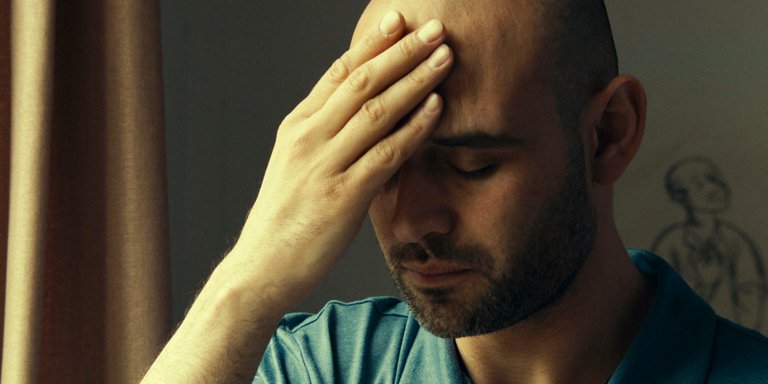
While the center of What Do We See When We Look at the Sky? is the love story between Lisa and Giorgi, or rather the possibility of that story, the film's scope expands to encompass more things and more characters, as if they were all part of a great whole (as in fact they are) and although it is understood who the main characters are, all those secondary characters are an important part of the portrait that Alexandre Koberidze makes in his film.
Si bien el centro de What Do We See When We Look at the Sky? es la historia de amor entre Lisa y Giorgi, o más bien la posibilidad de esa historia, la mirada de la película se amplía hasta abarcar más cosas y más personajes, como si todos formaran parte de un gran todo (como de hecho es) y aunque se entiende quiénes son los personajes principales, todos esos personajes secundarios son parte importante del retrato que hace Alexandre Koberidze en su película.
The owner of the bar, the young students who gather in different parts of the city, the children who play soccer in the midst of the World Cup fever (there is a wonderful sequence in which they play in slow motion while we listen to Un'estate italiana, the song from the Italian World Cup '90), Lisa's friend who recommends someone to break the spell, the dogs that wander the streets of Kutaisi (yes, dogs are characters), the filming crew of a documentary that is in the city to finish their filming, the same narrator who, like a voice-over, explains to us things that we could not know otherwise (and that perhaps because of that and his way of expressing himself I was able to enjoy even though it's a narrative resource I don't like so much), the river, the city itself is a character in the film (Leonel Messi himself is a character even though he doesn't appear)... the beautiful photography by Faraz Fesharaki and the direction by Koberidze turn everyday life into poetry transforming his film into an ode to love, to the process of falling in love, to the city, to human society, to everyday life not exempt from magic and wonderful moments in its simplicity, and of course it's also an ode to cinema and to those of us who love the seventh art. What Do We See When We Look at the Sky? was a beautiful discovery for me, one that I would like to recommend to the members of this platform, have any of you seen it? Have you heard anything about this movie? I read you in the comments.
El dueño del bar, los jóvenes estudiantes que se reúnen en diferentes puntos de la ciudad, los niños que en medio de la fiebre mundialista juegan al fútbol (hay una secuencia maravillosa en la que juegan en cámara lenta mientras escuchamos Un'estate italiana, la canción del mundial de Italia '90), la amiga de Lisa que le recomienda a alguien para romper el hechizo, los perros que deambulan por las calles de Kutaisi (sí, los perros son personajes), el equipo de rodaje de un documental que se encuentra en la ciudad para terminar su filmación, el mismo narrador que como una voz en off nos explica cosas que no podríamos saber de otra forma (y que tal vez por eso y por su forma de expresarse pude disfrutar a pesar de que es un recurso narrativo que no me gustan tanto), el río, la misma ciudad es un personaje de la película (el propio Leonel Messi es un personaje aunque no aparezca)... la hermosa fotografía de Faraz Fesharaki y la dirección de Koberidze convierten la cotidianidad en poesía transformando su película en una oda al amor, al proceso de enamorarse, a la ciudad, a la sociedad humana, a la vida cotidiana no exenta de magia y de momentos maravillosos en su sencillez, y por supuesto es también una oda al cine y a quienes amamos el séptimo arte. What Do We See When We Look at the Sky? fue un hermoso descubrimiento para mí, uno que me gustaría recomendar a los miembros de esta plataforma, ¿alguno de ustedes la ha visto? ¿han oído algo de esta película? Los leo en los comentarios.
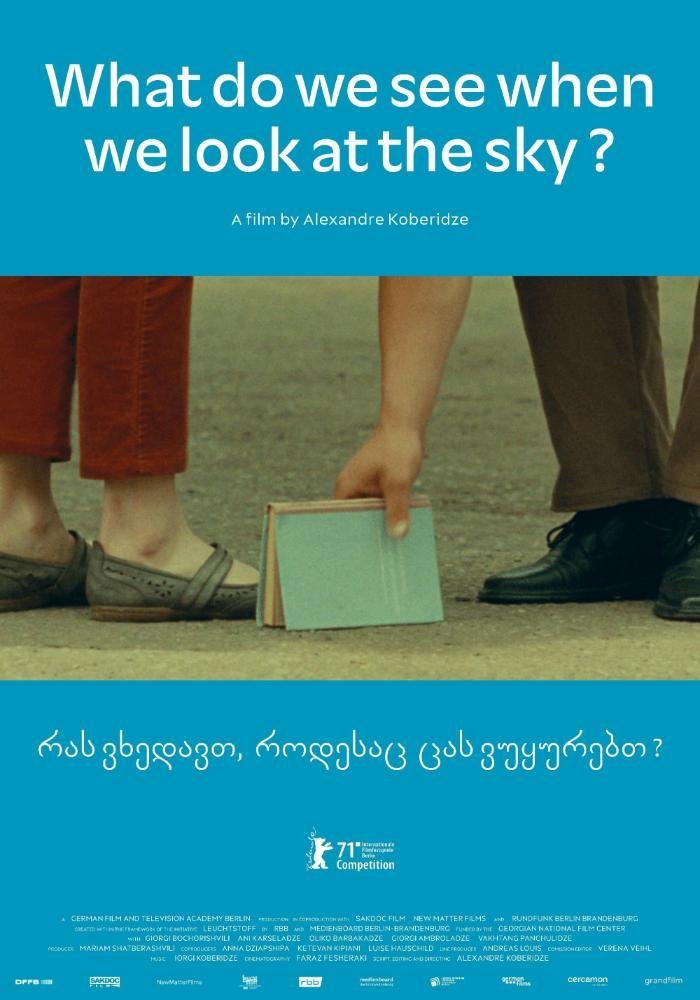
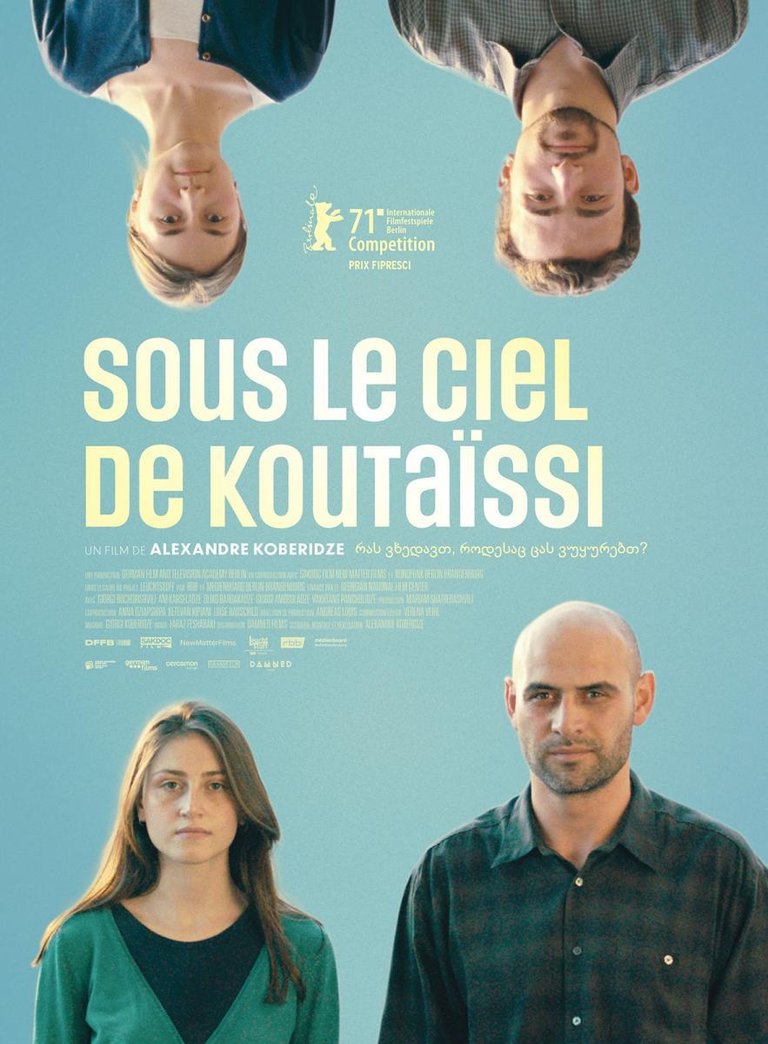


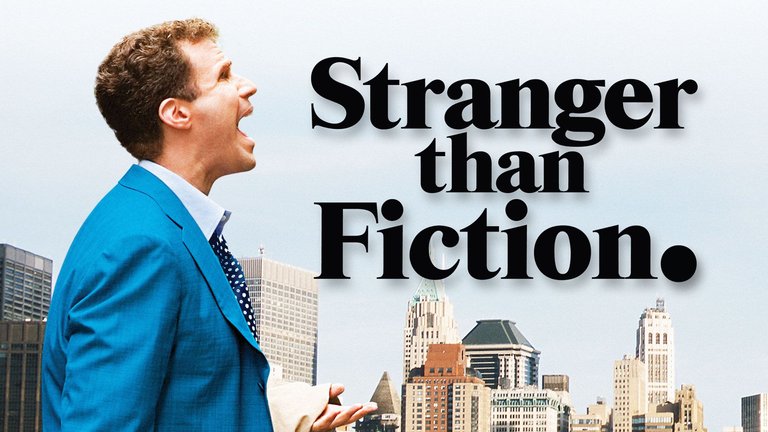
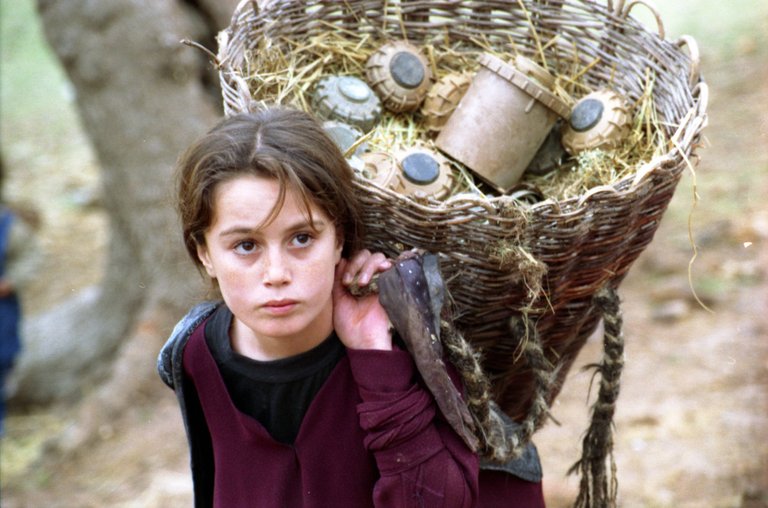
Yeehaw! This here blog post is as refreshing as a mountain stream at sunset.
Wow! Thank you so much for those kind words. I hope you enjoy the content. Have a great day!
Saddle up and keep spreadin' kindness like confetti at a barn dance, partner! Your positivity is as refreshing as a mountain stream on a hot day. Happy trails to ya! 🤠🌟
Tenía un tiempo perdida de aquí, y leer una de tus reseñas se siente cómo reecontrarme con algo familiar que aprecio. Con ellas conozco historias de toda clase, y sin importar cuál sea, siempre le pones mucha pasión a cada una de ellas. Esta historia en particular es una que quiero ver y espero hacerlo pronto, creo que sin tus palabras jamás habría dado con ella. ¡Gracias por compartir!
¡Qué lindas palabras! Gracias por tu valoración y comentario. Intento ofrecer algo diferente, ya sea por lo poco comunes de algunos títulos o por una visión personal de los lugares comunes. Me agrada mucho que eso se perciba en mis publicaciones. Un abrazo.